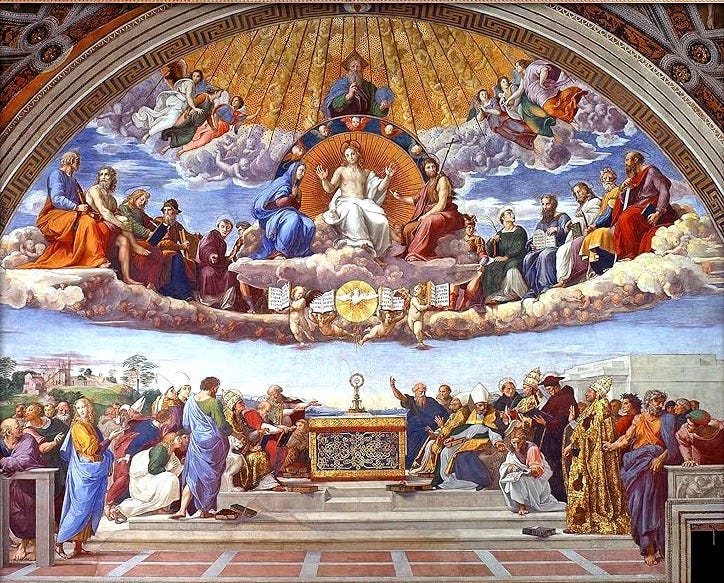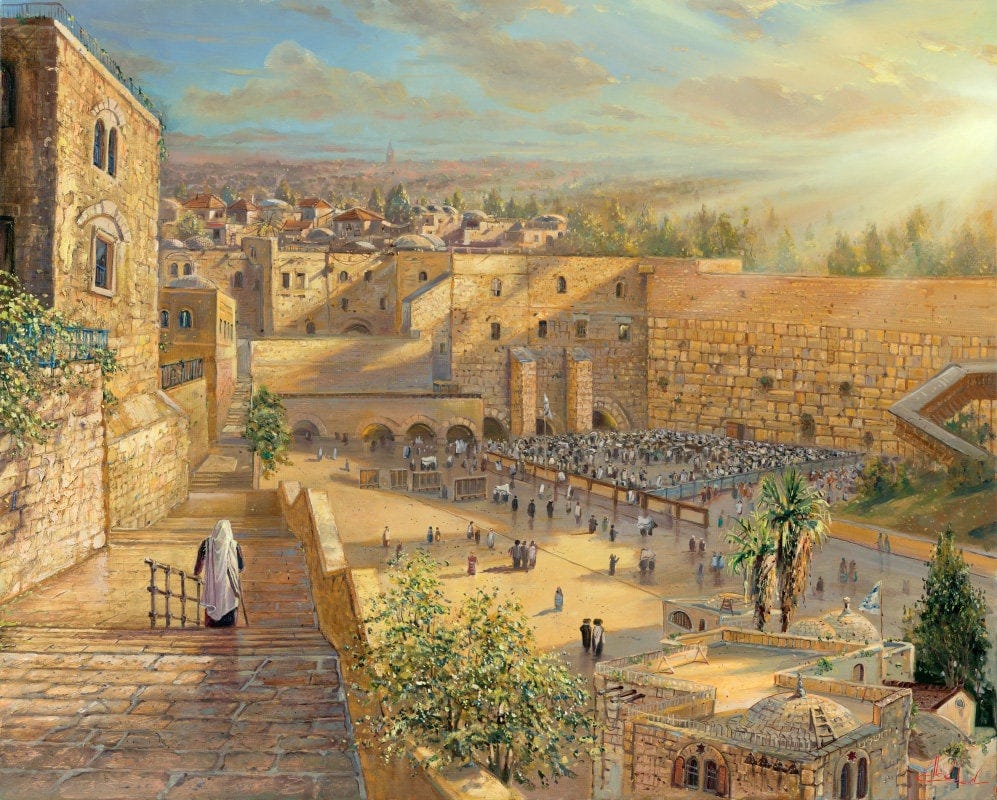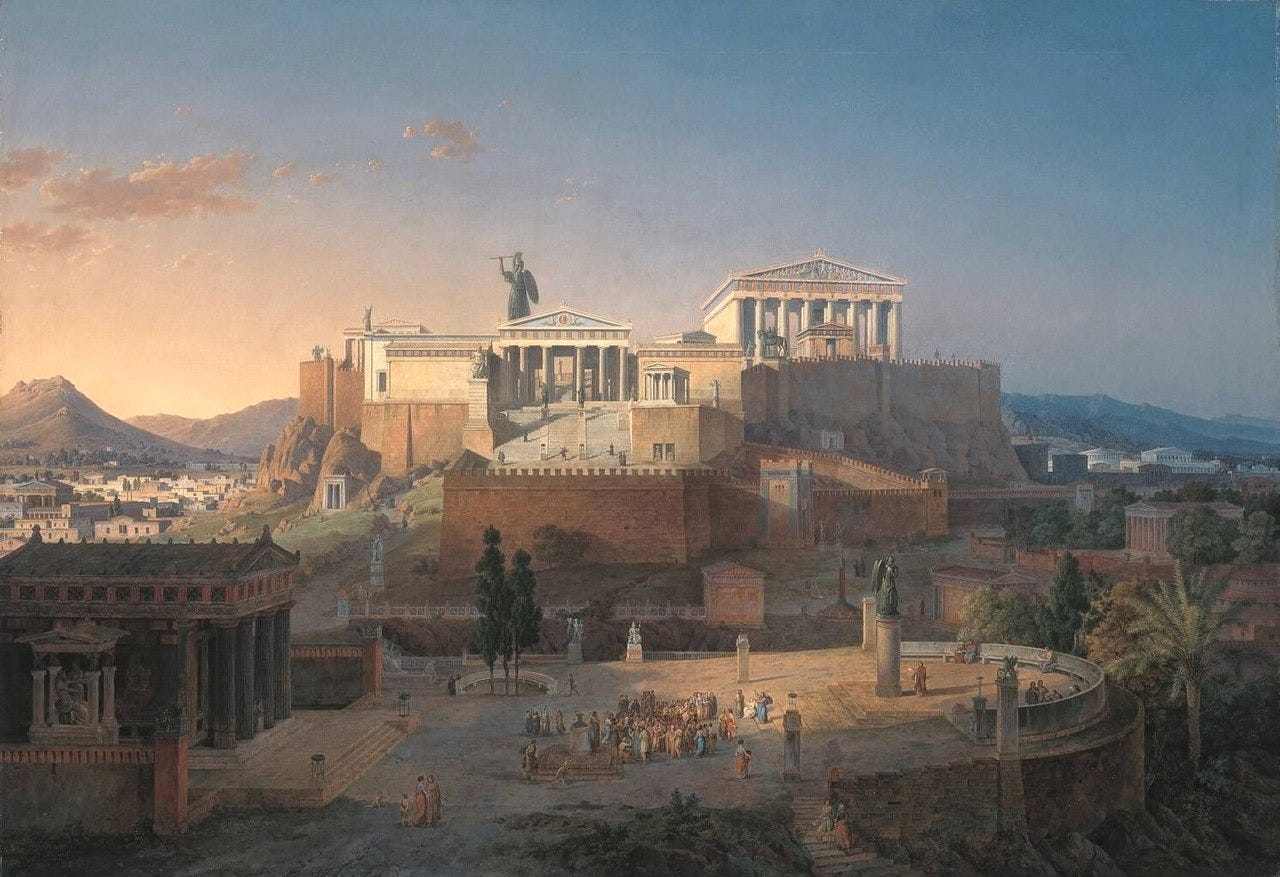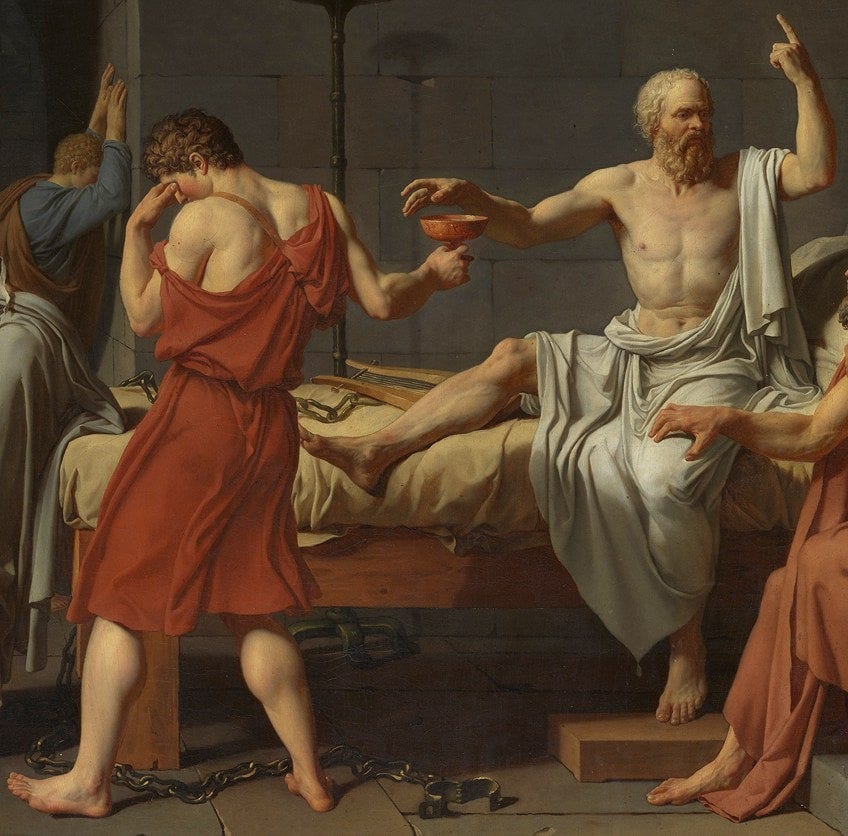The Two Pillars Every Education Needs
What Every Serious Thinker Must Know About the West
If you want a richly developed intellectual life, you need a deep-rooted knowledge of the two pillars of Western Civilization.
Those pillars are Athens and Jerusalem — the West’s culture, identity, and beliefs trace back to these two ancient cities and their respective traditions.
In other words, a rich understanding of Hebrew Faith and Greek Philosophy gives you a well-formed intellect, the wisdom to live a good life, and a rock-solid understanding of the 2,000 years of the “Great Conversation” in Western Civilization after Christ.
And perhaps most importantly, Athens and Jerusalem help you understand why the West today is a civilization in decline.
Today we’ll explore the principles of these cities that built society, how we lost those principles, and most importantly, how we can recover them to build a better future.
Reminder:
Join me on Dec 10 for a live discussion where we’ll explore how to recover the education modernity stole from us.
Seats are limited — reserve your spot now and start rebuilding your intellectual foundation:
Jerusalem
Whether you’re religious or not, reading the Bible is essential for serious intellectual formation. When we speak of Hebrew Faith, we mean the Old Testament — the scriptures of the Jewish people before Christ.
The Bible is foundational because it’s considered both the “substance and substrate” of reality.
By substance, we mean the metanarrative that formed the foundation of Western Civilization, rooted in the faith of ancient Israel.
By substrate, we mean that the biblical account puts you in harmony with the cosmos. It teaches you an implicit moral formation of trust, goodness, and responsibility toward neighbor, nature, and creator.
To put it simply, humans live by narratives, whether we know it or not. A deep knowledge of the Bible, even as a purely intellectual study, gives you a narrative that teaches you to live well and build high-trust communities.
Therefore, for any civilization to exist, people need a shared metanarrative about reality and a sound moral code of good and evil, and the Bible was that solution for the ancient world.
But that’s only half of what built the West.
Athens
Athens, or more specifically Greek philosophy, is the other pillar of the West.
Ancient Greece has a very rich intellectual tradition, but the chief minds to concern yourself with are Socrates, Plato, and Aristotle. Their thinking taught the pagan world — and later the Christian world — how to use reason to discern morality, seek god, and understand the truth of the cosmos.
It began with Socrates’ exhortation that he “knows that he knows nothing at all.”
Socrates wrote nothing, but questioned everything. He was notorious for questioning men throughout the city about widely held beliefs and cultural ideas:
“Do the gods love things that are holy, or are things holy because the gods love them?”
This endless questioning caused social disturbances that threatened the political stability of Athens, so Socrates was given an ultimatum by the authorities — stop philosophizing, or we’ll put you to death.
Socrates chose death, citing it better to die in pursuit of Truth than live in apathy. Though he died, his spirit lived on…
Plato, Socrates’ pupil, continued his work. He posited the belief that “the truth will set you free.” This idea is a cliche today, but at the time it was groundbreaking:
Plato said a higher, metaphysical reality underlies the material world. He called this reality the realm of the “forms.”
In other words, behind the appearance of material reality were the immaterial forms of Truth, Beauty, and Goodness.
These transcendental forms underpinned all reality in the universe. The Greeks called this the logos — the divine order of reality.
So Plato used reason to teach that life was about pursuing Truth, Beauty, and Goodness, to know the logos…
The Third Pillar
This might explain why Athens and Jerusalem mattered in antiquity, but there’s one more pillar that binds them together.
One moment in history united the Hebrew and Greek traditions and, in the “fullness of time,” ignited the 2,000-year culture we call the West:
Everyone knows the crucifixion, how Christ died to expiate the sins of man, but few grasp what it means that He entered history in that precise “fullness of time,” and how that moment reshaped the West’s moral imagination for the next 2,000 years.
Here then, is how that singular moment shaped, transformed, and inspired the greatest minds of the next two millennia…






